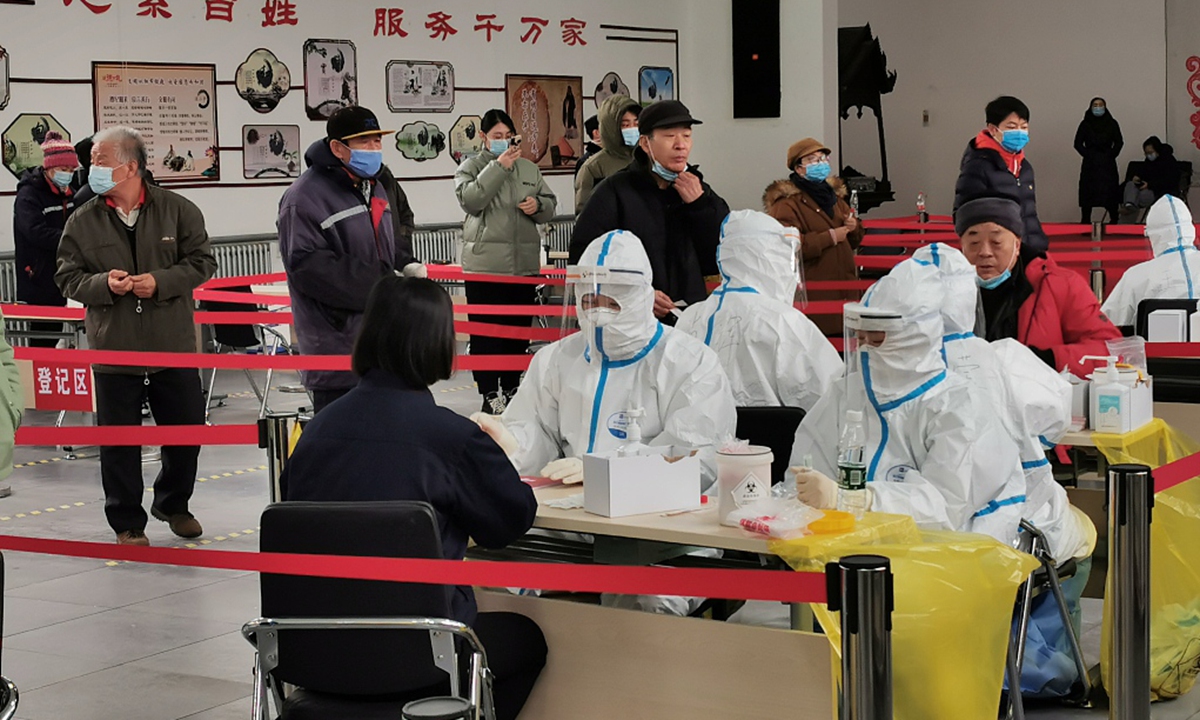
Villagers queue up to receive nucleic acid testing at a designated site in Chaoyang district, Beijing on January 14. Photo: VCG
China's health authorities will set up mobile nucleic acid testing teams, after the State Council issued rules stipulating that cities with a resident population of less than 5 million must be able to complete nucleic acid testing of all residents within two days.
Cities and provinces nationwide will have to reassess their nucleic acid testing capabilities and overcome shortcomings among testing professionals and facilities. Eventually, cities with less than 5 million residents must be able to complete testing in two days, and cities with more than 5 million residents must be able to complete testing in three to five days with provincial and national support, the State Council said in a newly released notice on Wednesday ahead of the Spring Festival.
The National Health Commission will also build up mobile testing teams and provide support to areas with weak testing capabilities, the State Council said.
The NHC has made nucleic acid testing mandatory for people returning to their hometowns during Spring Festival. People must show negative nucleic acid test results issued within seven days of their trips. Those returning to rural areas also have to undergo 14-day health monitoring at home after arrival.
Apart from requirements for boosting testing capabilities, the State Council also placed emphasis on professionalism and quality of nucleic acid testing.
It said testing kits will go through quality evaluation and cities must map out pre-arranged planning and strengthen training for sample collection teams.
Regular testing of high-risk groups including cold-chain industry employees will be carried out at least once a week, and samples from public service workers and key environments will be taken regularly.
The anti-epidemic leading group will operate 24 hours a day and be ready at anytime, and must release epidemic reports every day even if there is zero infection.
Any detection of confirmed and asymptomatic cases will be reported online to higher administrations within two hours. Local-level disease prevention and control departments must immediately activate epidemiological investigation and complete them in two hours.
For anti-epidemic controls in villages nationwide, the State Council said pharmacies in villages must register information of people suffering from fever and suggest that they receive nucleic acid tests as soon as possible. Any late reporting or concealment will incur punishment.




